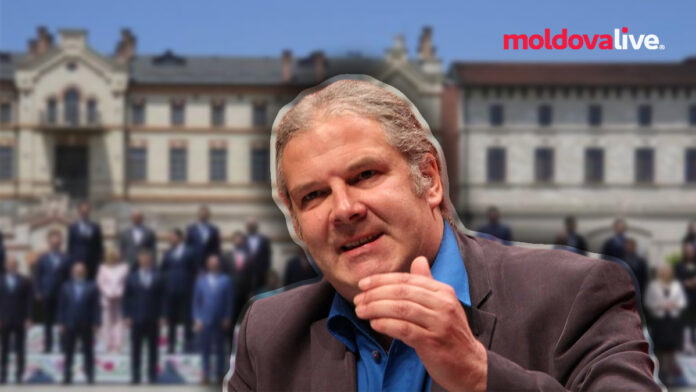In an exclusive interview with eNews, Andrej Hunko, a member of the German Parliament from the Left Party and a member of the Parliamentary Assembly of the Council of Europe (PACE), shared his thoughts on the outcomes of the European Political Community (EPC) summit, which had taken place in Moldova.
According to Andrei Hunko, the choice of the Republic of Moldova as the host country for the second summit of the European Political Community had clear geopolitical implications. It served multiple purposes, including demonstrating support from major Western countries for President Sandu and her policy of reorienting towards the West. Additionally, the summit was seen as a signal to Russia that the West is prepared to engage in a conflict regarding Moldova’s geopolitical orientation.
Hunko pointed out that holding a second summit in Moldova was meant to symbolize respect for Eastern European countries, although the balance of economic and political power raises questions about the extent of this respect. The European Political Community summit, in Hunko’s view, represented the geopolitical response of the EU in Eastern Europe.
Regarding Macron’s initiative to create a European Political Community, Hunko stated that its objectives remained unclear, and different actors seemed to be utilizing the forum for various purposes. The short-term objective appeared to be demonstrating European unity against Russia, but Hunko noted that there was limited progress in terms of policy development and decision-making. He questioned the need to convene 47 states for informal discussions with Armenia and Azerbaijan.
FOR THE MOST IMPORTANT NEWS, SUBSCRIBE TO OUR TELEGRAM CHANNEL!
Hunko also highlighted considerable disagreement regarding the establishment of a secretariat for the new format and its greater institutionalization. He observed that the French initiative did not receive the support of Germany, which is considered their “foreign policy partner.” The participation of states in both the European Political Community and the Organization for Security and Cooperation in Europe (OSCE) raised concerns about institutional overlap and the crisis facing the OSCE’s inclusive security format.
According to Hunko, the European Political Community offered a platform for cooperation with authoritarian states, omitting mention of democracy, the rule of law, and human rights, which form the basis of the Council of Europe’s format. He emphasized the challenge posed by the EPC’s monopolized executive representation, which bypassed the political control and preparation processes of international parliamentary systems.
Regarding Moldova’s independence and neutrality, Hunko acknowledged that the final decision rested with the country itself. However, he cautioned against steps that could undermine neutrality, drawing examples from discussions in other countries such as Switzerland. He emphasized the importance of an independent and open discussion of arguments to maintain independence without being associated solely with Russia.
In terms of an alternative way to develop a united Europe, Hunko described the left-wing debate as complex and slow to evolve. While there is a broad agreement on the role Russia plays in ensuring European security and the common goal of a united Europe, Hunko highlighted the ongoing debate about whether security should be organized against or with Russia.
In conclusion, the interview provided valuable insights into the European Political Community summit and raised important questions about its objectives, institutionalization, and implications for Moldova’s neutrality and independence.


